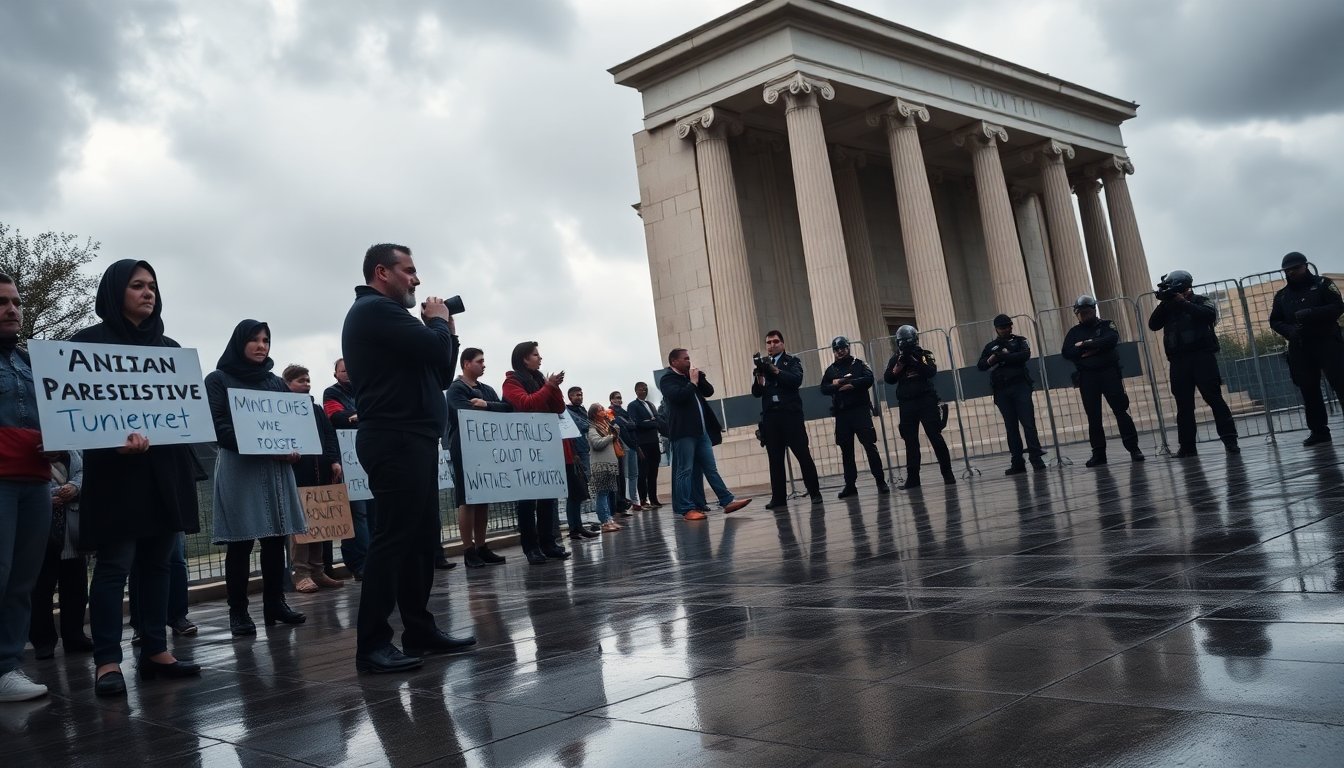Table of Contents
In a significant development highlighting the ongoing political turmoil in Tunisia, a court has delivered lengthy prison sentences to several individuals associated with the opposition, business sectors, and media. This ruling arises from allegations of conspiracy against state security and ties to a terrorist group. The legal actions against these figures have sparked widespread concern regarding the state of democracy and freedom of expression in the country.
Tunisia, often recognized for its democratic transitions following the Arab Spring, now faces increasing scrutiny as the government intensifies efforts to silence dissent. The recent sentences raise critical questions about the balance between national security and individual freedoms.
Background of the court ruling
The judicial proceedings leading to these sentences were marked by a series of controversial trials. The defendants included prominent opposition politicians, influential business leaders, and notable media personalities, all accused of undermining the Tunisian state. The government asserts that these individuals posed significant risks to national stability, a claim contested by many observers.
Charges and implications
The charges leveled against the accused are serious, centering on their alleged involvement in a plot to undermine the government. The accusation of conspiracy against state security is significant, yet critics argue that the definitions used in the trials often lack clarity and transparency. Moreover, the context of these charges raises concerns about potential political motivations behind judicial decisions.
Many defendants deny any wrongdoing, asserting that their only crime was expressing dissenting opinions or investigating matters of public interest. The implications of these charges extend beyond individual cases; they signal a broader trend of repression that may deter others from engaging in political discourse or critical journalism.
Reactions from the public and international community
The public reaction to the court’s ruling has been mixed. Some express support for the government’s stance on maintaining order in a nation still grappling with political instability. Others have taken to social media and public forums to voice their discontent, condemning what they see as an attack on fundamental rights.
Internationally, human rights organizations have condemned the sentences, urging Tunisian authorities to uphold principles of justice and freedom. They argue that such actions undermine the progress made since the revolution and could lead to further alienation of the populace from the political process.
The role of media in this context
The role of media figures in the recent court cases is significant. Journalists and media outlets increasingly find themselves under scrutiny, accused of disseminating information deemed harmful to national interests. This situation raises serious concerns about the freedom of the press and the ability of media professionals to operate without fear of reprisal.
As the government seeks to control narratives surrounding national security, the risk of self-censorship among journalists grows. The chilling effect of such legal actions could inhibit critical reporting on government activities, depriving the public of essential information.
Looking ahead: the future of dissent in Tunisia
As the situation evolves following these recent court rulings, the future of political dissent in Tunisia remains uncertain. The government continues to assert its need to protect the state from potential threats; however, the methods employed raise alarms both domestically and internationally.
Tunisia, often recognized for its democratic transitions following the Arab Spring, now faces increasing scrutiny as the government intensifies efforts to silence dissent. The recent sentences raise critical questions about the balance between national security and individual freedoms.0
Tunisia, often recognized for its democratic transitions following the Arab Spring, now faces increasing scrutiny as the government intensifies efforts to silence dissent. The recent sentences raise critical questions about the balance between national security and individual freedoms.1


